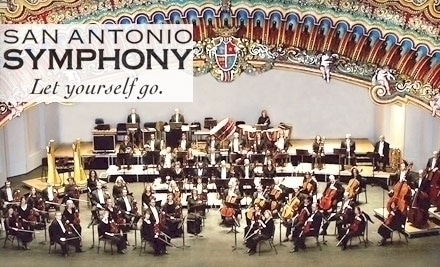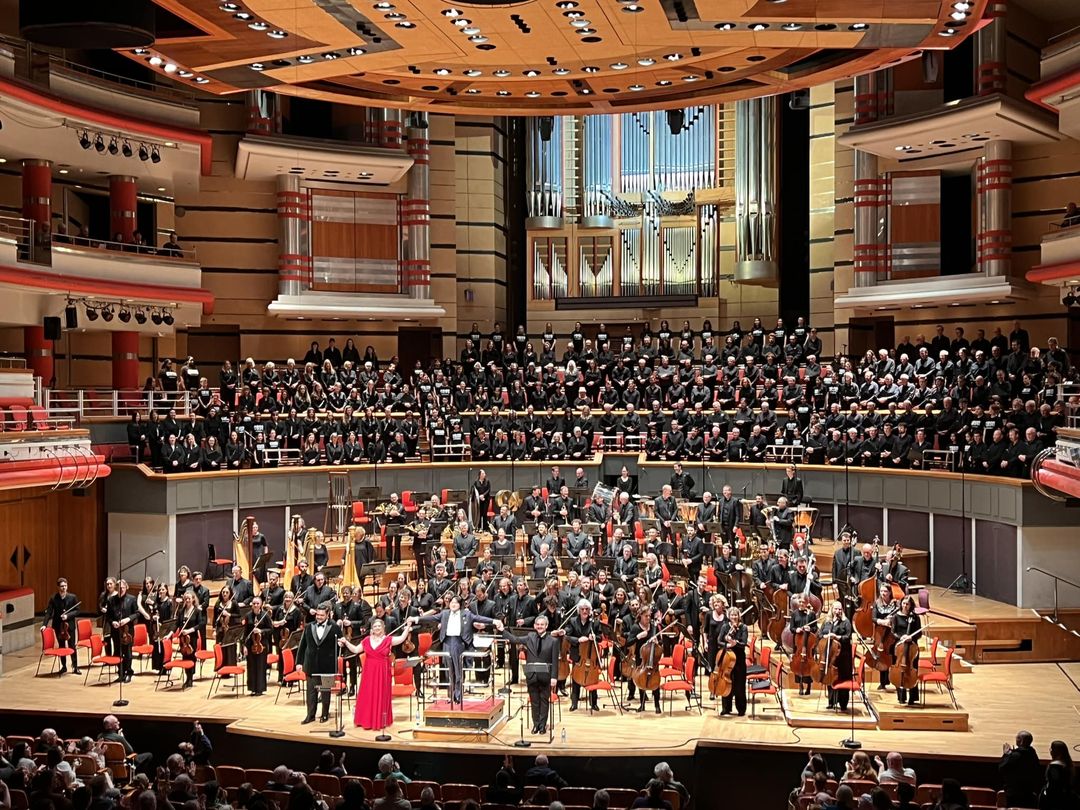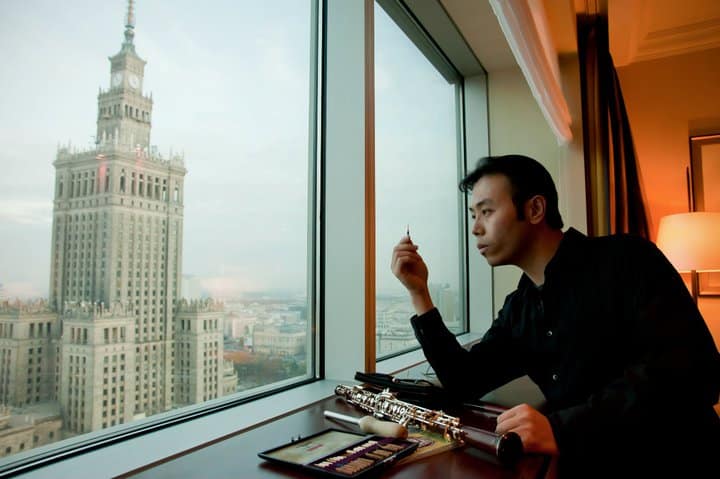San Antonio musicians form a new orchestra
NewsThe San Antonio Symphony was liquidated some weeks ago by its board after a long labour dispute with the musicians.
Now the players have formed the San Antonio Philharmonic to serve America’s seventh most populous city.
None of the former board members or staff have been invited to join. An efficient new development manager is at work raising funds.
The players say:
When the San Antonio Symphony management ceased operations in June, 2022, the musicians – some of whom won their seats in the 1970s and ‘80s — were determined to preserve world-class music in San Antonio. With their formation of the San Antonio Philharmonic, we all have an historic opportunity to re-invent what an orchestra in the 21st century can be. One that reflects the spirit of our time and place. We invite all to take part and feel the pride.
The Philharmonic envisions a San Antonio in which every resident has access to high-quality orchestral performances and educational opportunities that reflect the beautiful history, diversity, and culture of our community and beyond. We are seeking ways to involve new audiences in the transformative power of music.
Expect dynamic and professional concerts as before. If you are often in the audience, you will recognize your favorite musicians. We also are actively engaging the community, collaborating with artistic and educational institutions, mining ideas and developing programs. Student performances are high on our list — music has the power to open minds and spirits for life.






I certainly wish them well. There are wonderful musicians in the orchestra. But, no matter how you slice it, San Antonio is a very tough city to raise money for the arts, for all kinds of reasons.
I hope they do not try to replicate the “business model” the old symphony had: 75 musicians on full time salary with a generous benefits package, playing 28 classical subscriptions concerts plus pops. They will also need professional management help in areas such as marketing.
The biggest challenge will be to overcome the decades-long public image and knowledge that the symphony has always been in financial trouble and that these new folks are a clean break from the past. “Mucha suerte” as we say in San Antonio.
The old San Jose Symphony has become ‘Symphony Silicon Valley’. Even with all the tech money in the valley, they’ve never been the same. They do far less sets now, and do mostly pops concerts and ‘pot boilers’. When wealthy people from the south bay want a ‘night out on the town’, they go to S.F. and not downtown San Jose. It’s pretty much always been that way. Anyway, they’ve discovered just how difficult it is to raise money and drum up enthusiasm (unless more John Williams movie nights are your idea of a great local orchestra).
The difference is that San Antonio is not a convenient drive from Dallas, Houston or Fort Worth.
My best wishes to the members of the San Antonio Philharmonic, who have a difficult (but, I hope, not impassable) road in front of them.
This will be yet another of several re-organizations of orchestral music in San Antonio over the years.
You can’t say they aren’t persistent!
Best wishes for their success!
At least some hopeful and good news! Wishing them all the best.Congrats also for getting Ken David Masur for their first concert!!!Fabulous conductor and nice man!
If they are smart – and I’m sure they are – they might want to reach out to the musicians of the Tulsa Symphony for advice, the so-called musician’s cooperative orchestra, which was formed when the old Tulsa Philharmonic folded in 2002. However, Tulsa does have a professional administrative staff and a large board.
I’m starting to wonder if the 501c3 nonprofit model really works for music groups. The boards of directors required for this model consist of people chosen for their “financial expertise” who will run the organization “like a business.” But think about what that phrase actually means: in this century we have seen that it’s possible to lose millions of dollars for your business and not only keep your job but get a bonus, or succeed for reasons that have nothing to do with your actual skill because you got lucky with timing and market forces, or cook numbers such that it looks like you have succeeded when you haven’t. You couldn’t possibly get away with that level of failure or hazy metrics of success as a professional symphonic musician. Sure, you can miss a note occasionally, but if your missed notes become chronic you will lose your job. And many musicians have to begin their careers as entrepreneurs, contracting weddings and recording sessions and the like, and they learn to do it well because they are not insulated from the repercussions of these transactions.
My point is that I am sure that there are many more musicians who could successfully manage the finances of an orchestra than there are administrators and board members who could play in that orchestra – or do anything with that level of consistent excellence. American orchestras have a much better track record at this point than American financial institutions, so maybe we should stop fetishizing “financial expertise” and start allowing orchestras to be run by people who actually understand and appreciate the mission of the ensemble and its place in the community.
My hearty congratulations to San Antonio; let’s keep an eye on them because they may be a role model for the future.
As Sol Hurok (allegedly) once said: “If the music business was really a business, it couldn’t stay in business.”
Of course, he actually did once say: “If no one wants to buy a ticket, you can’t stop them.”
Unfortunately if every ticket is sold there is still at the minimum a 20 to 40 percent shortfall in costs to ticket income. That is the old William Baumol Cost Disease or Productivity Lag Economic Virus. It effects everyone all the way up to the major symphonies and Opera Companies. That has nothing to do with 501 C-3 but everything to do with the vision about the value of Art as a Evolutionary Biological necessity in the development of the human instrument and the culture that feeds that beloved Individualism. When the individualist discovers how limited his Individual psycho-physical make up is in the grand scheme of things then Art becomes the teacher developer of the human instrument and it’s discipline. It is not correlative to Intelligence but causative. Mastery is the goal but virtuosity is the tool. Congratulations to the new Philharmonic. It shows the depth of your cultural history and intelligence. Ray Evans Harrell, Artistic Director, The Magic Circle Opera Repertory Ensemble, Inc. NYCity.
The 501c3 works really well in most cases. It works really well for most major orchestras.
Your post reads like it was written by one who doesn’t understand nonprofits.
I’ve spent my entire career working for nonprofits, even working as a grant writer, as well as a musician, teacher and administrator. They never “work really well”; the best you can say about them is that they make it possible to do certain work that would be impossible to do if that designation didn’t exist. I’m not saying we should do away with them, just make them work better and be more flexible in their structure, because what works for a health clinic or the NFL (yes, it’s a nonprofit) doesn’t always work for a music ensemble or a conservatory.
“The boards of directors required for this model consist of people chosen for their “financial expertise” who will run the organization ‘like a business.'”
No, in most cases the board of directors consists largely of people who can either donate themselves or raise from among their friends a large amount of money each year.
God bless them! Let us know how we can help!
I wish them well. No doubt, many players in the newly formed ensemble were in the orchestra when we played together. Their unity and passion to make this work will be a strong start to a new musical entity serving San Antonio.
The San Jose, CA, Symphony was, under George Cleve, a wonderful orchestra.
Any chance they could return to their former home, the fabulous Majestic Theatre for a few important concerts?
For now, they’re playing in San Antonio’s First Baptist Church, where the musicians played their concerts while on strike.
For now, they are not playing at the Tobin Center, which was built to be the venue for the city’s professional symphony orchestra. The bassoonist who’s spearheading the new SA Phil says the Tobin Center hasn’t reached out to them and they haven’t reached out to the Tobin Center.
This is good news. An aggressive move to obtain funding from corporate entities like H.E.B., Valero, Tesoro, SSA, etc. should be the number one goal. There is plenty of money in S. A. and the past symphony board failed miserably in outreach. Any corporation that wasted money on BLM should have no problem donating to a worthwhile project. Best of luck to the new Philharmonic. I lived in S. A. back in the 80’s and always enjoined the symphony.
So you didn’t like that comment? How about naming the orchestra The BLM Philharmonic of San Antonio. All “woke” corporations would flood the Philharmonic with millions in donations. Stay well, friends